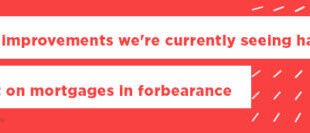
The coronavirus pandemic has us all concerned about our health, the safety of friends and family and about our jobs.
Businesses that haven’t closed have probably seen a significant loss of revenue, leading to record numbers of workers experiencing a partial or total loss of income. While waiting to return to work, many people are struggling to keep up with bigger-than-normal grocery bills and internet charges. More worrisome is how they’re going to make their next couple of monthly mortgage payments.
If you fear you’ll be unable to pay on schedule because of the economic fallout from coronavirus, keep reading. You can’t avoid payments altogether, but there may be some temporary relief available.
Thinking of skipping a mortgage payment? Think again
Some lenders have marketed mortgage refinancing as a way to ‘skip’ a payment. That’s just a ‘funny math’ way of looking at refinancing. Since a refinanced mortgage doesn’t start until after it’s accrued a month’s worth of interest, it can appear as if you’re ‘skipping’ payments. In reality, you’re paying interest the entire time and starting the principal payments a month afterwards. You’re not skipping anything. But there is a way you can ‘suspend’ a payment.
Press-pause with mortgage forbearance
There’s a mortgage process called forbearance that allows you to temporarily reduce or suspend payments when you’re experiencing a financial setback.
Let’s be totally upfront: Mortgage forbearance doesn’t forgive the money you owe. You’re not skipping a payment. Missed installments still need to be made up within their current loan term, so you’ll still have to repay any suspended or reduced payments at the end of your rough patch. Keep that in mind if you feel you might be able to continue making your monthly payments. If you have any savings put aside, consider staying the course.
If the pandemic’s stay-at-home orders have thrown your finances out of whack, you might be able to press pause on your mortgage payments. Congress’s relief package, the Coronavirus Aid, Relief, and Economic Security Act (CARES Act), states that anyone who has a federally-backed mortgage — including a Fannie Mae, Freddie Mac, USDA, FHA or VA loan — is eligible for federal mortgage forbearance.
How the CARES Act is looking out for your mortgage
First things first: If you’re one of the millions who have lost your income entirely, we hope you’ve already filed for unemployment benefits with your state.
Once you’ve done that, immediately contact your lender or mortgage servicer if you feel you will be unable to make your monthly payments in full (or at all) due to the coronavirus. The CARES Act offers forbearance relief for government-backed loans for periods up to 12 months. If your hardship lasts longer than that, an extension may be possible.
If your loan isn’t covered by the CARES Act, there may be other options. Some states are rolling out their own programs for homeowners whose mortgages aren’t backed by the federal government, with reprieves of up to 90 days. In many cases, your regular mortgage interest will continue to accrue, but you may not be subject to additional fees, penalties or interests. So, as a last resort, check with your lender to see if they have a similar program.
How are deferred payments paid back?
Because it’s mortgage forbearance, and not mortgage forgiveness, you’ll eventually have to adhere to the original terms of your loan agreement. How the reduced or paused payments are repaid is up to your lender or mortgage servicer. Some may require a lump-sum payment when the agreement ends. Others may offer repayment plans. Still others may move missed payments to the end of your mortgage term, extending how long it will take for you to own your home outright. Make sure this is discussed before the forbearance goes into effect.
Relief after COVID-19
Mortgage forbearance is not just available during the coronavirus-based economic downturn. Just as unemployment or a job furlough can cause a temporary setback, you could also experience financial hardship due to any number of things: Divorce, the death of a household provider, illness, disability or a natural disaster like a tornado or hurricane.
If you’re unable to make your monthly mortgage payments for a short time, don’t skip payments. That could lead to a ding on your credit rating, or worse, foreclosure on your property.
Stay safe! Don’t skip, and call your lender or loan servicer today.



